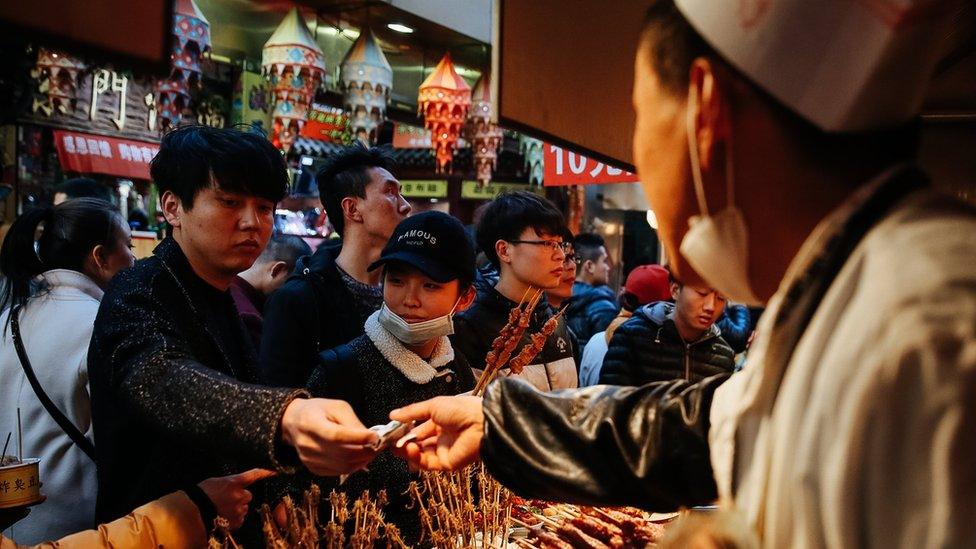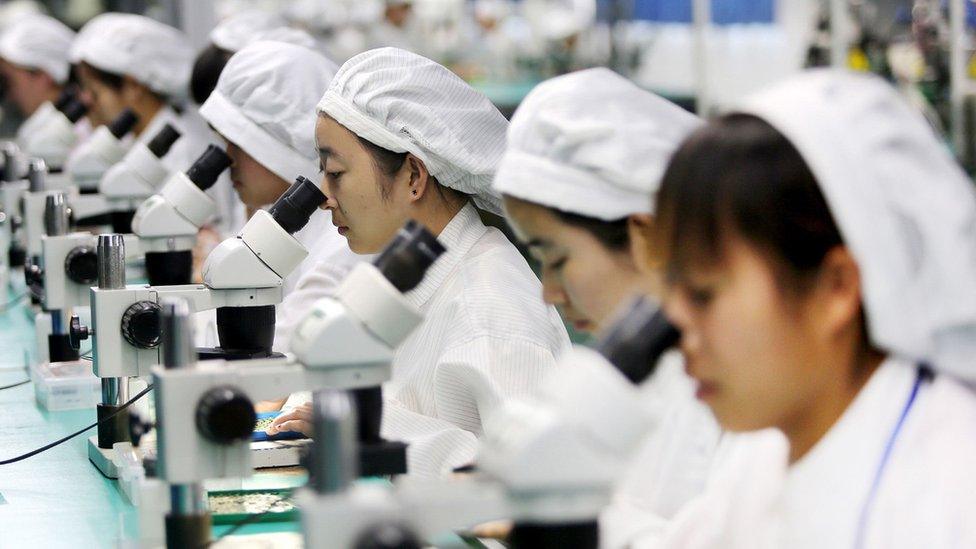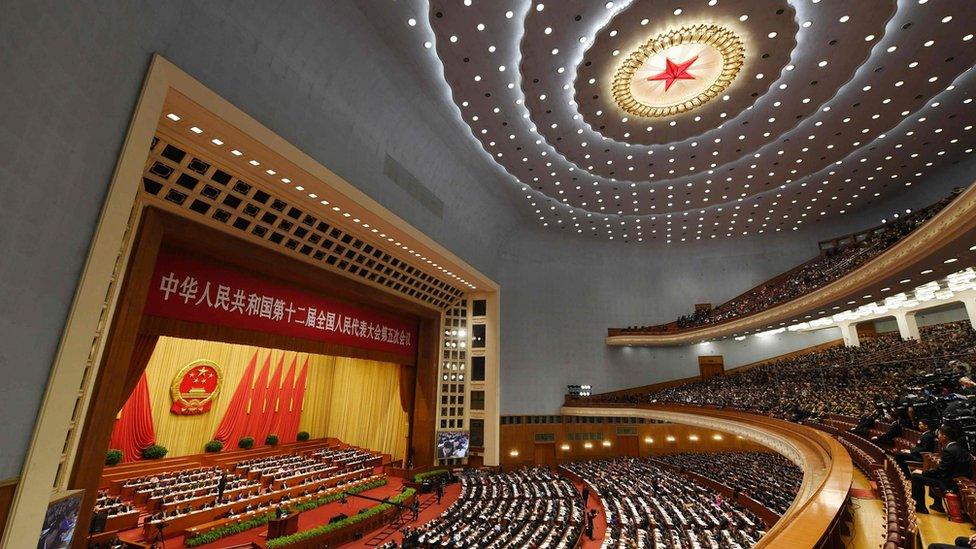China sees first monthly trade deficit in three years
- Published

China has reported its first monthly trade deficit in three years, after imports surged and a slowdown during the Lunar New Year holidays hit output.
Higher commodity prices and domestic demand were credited with pushing February's imports up 38.1% on a year earlier.
But exports unexpectedly fell 1.3%, giving a trade deficit of $9.2bn for the month.
China's monthly imports last exceeded exports in February 2014.
Analysts polled by Reuters had forecast China would have a monthly trade surplus of $25.8bn.
Import slowdown likely
The country's economic data from January and February can be distorted by the long holidays, which see businesses slowing down and often cutting back operations or closing completely.

And most analysts agree that the latest data is just a blip, with a surplus inevitable again once the impact of the holidays tails off.
"The latest trade data suggest that, seasonal distortions aside, both exports and imports strengthened at the start of 2017," said Julian Evans-Pritchard of Capital Economics.
"However we doubt that the current pace of import growth can be sustained. It is only a matter of time before we see a slowdown in domestic demand."
Rebalancing
With the Chinese economy expanding at its slowest pace in 26 years in 2016, Beijing is likely to be heartened by the latest import figures, as it looks for signs of improvement.
Leaders are trying to rebalance the economy, reducing reliance on state investment and exports, and growing more through domestic consumption.
At the weekend, Premier Li Keqiang used his speech at the country's rubber-stamp parliament, the National People's Congress (NPC) to cut China's annual growth target to 6.5%.
Carrie Gracie: Could China's Trump tactics actually be working?
China's trade balance was thrust back into the spotlight by Donald Trump during the US presidential election campaign.
He ramped up his protectionist rhetoric accusing Beijing of not giving US firms access to key Chinese markets, and of making it impossible for US firms to compete with Chinese imports because the value of the Chinese currency was kept artificially low.
However, since coming to office, Mr Trump has held off officially calling China a currency manipulator.
- Published24 February 2017
- Published5 March 2017
